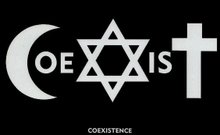The Case For Junia, The Lost Apostle
 "Greet Andronicus and Junia(s), my kinsmen and my fellow prisoners, who are outstanding among the apostles, who also were in Christ before me."--Paul, Romans 16:7
"Greet Andronicus and Junia(s), my kinsmen and my fellow prisoners, who are outstanding among the apostles, who also were in Christ before me."--Paul, Romans 16:7
The story of Junia is a sad one. Beginning in the 13th century, her memory was not only diluted, but the fact that she was an "outstanding" female apostle was hidden by medieval copyists who changed her name to the more male-sounding "Junias." Since the truth has been recovered that Junia was clearly a woman, modern-complementarian translators and scholars now try to strip Junia of the title "apostle," by concluding that she was merely known by the apostles or favored by the apostles, but could never have been deemed an apostle herself. This is a NEW interpretation. The fact that Paul was commending two apostles was never debated, only whether Junia was female or male, and even that debate did not start until the 13th century. The historical reading of this verse has always been that Junia was both a woman and an apostle. It's important to note that the early church fathers who conceded to these facts were by no stretch of the imagination "egalitarians." Many held degrading beliefs about women and their "divinely designated" position in life. But even they could not deny that Paul deemed this woman Junia to be an apostle, and an outstanding one at that.
Two Complementarian Views
1. Junia was really a man
The more hardcore-complementarians still refuse to admit that Junia(s) is a woman, even though for the first 1300 years of church history, ALL commentators of Romans 16:7 believed Junia to be a female AND the male name "Junias" did not even exist during Paul's era. On the other hand, the Latin/Roman-female-name "Junia" is found in ancient literature of Paul's time and found nearly 250 times in ancient Roman inscriptions.
The first person to expound on Romans 16:7 was the early church father, Origen of Alexandria (185-253), who understood the name Junia to be feminine. Other prominent church fathers and theologians recognized "Junia" as a woman: Jerome (340), who translated the Latin Vulgate; Hatto of Vercelli (924-961), a bishop and Greek scholar; Theophylact (1050-1108), and Peter Abelard (1079-1142), a French theologian and philosopher. Not a single commentator on the text until Aegidius of Rome (1245-1316) assumed the name to be masculine. Aegidius offered no textual or historical evidence to support his belief that Junia was a man. He simply made the passing comment about how "these two men" must have been honorable. John Chrysostom, church father from the 4th century, made it crystal clear that Junia was both a woman and an apostle:
John Chrysostom, church father from the 4th century, made it crystal clear that Junia was both a woman and an apostle:
"To be an apostle is something great. But to be outstanding among the apostles—just think what a wonderful song of praise that is...how great the wisdom of this woman must have been that she was even deemed worthy of the title of apostle."
Even though the historical and textual evidence is overwhelmingly in favor of rendering "Junia" as a feminine name, complementarians like John Piper and Wayne Grudem cling to the writings of the notoriously disturbed church father, Epiphanius, to "prove" that Junia could have been a man. Epiphanius (315-403) wrote the "Index of Disciples," in which he lists Junia as one "of whom Paul makes mention [and] became bishop of Apameia of Syria." Since Epiphanuis wrote the phrase "of whom" as a masculine relative pronoun, Piper and Grudem conclude that Epiphanius believed Junia to be a man. Regardless of what Epiphanius believed about the gender of Junia, it should be noted that he also believed Priscilla was a man! He once wrote that "the female sex is easily seduced, weak and without much understanding. The Devil seeks to vomit out this disorder through women... We wish to apply masculine reasoning and destroy the folly of these women."
Needless to say, Epiphanius is hardly a credible source. His own writings prove he succumbed to the worst brand of degrading patriarchy. He so despised women that he sought to edit influential ones right out of the scriptures.
New Testament scholar Bernadette Brooten comments on the fictitious male-name Junias:
"To date not a single Latin or Greek inscription, not a single reference in ancient literature has been cited by any of the proponents of the Junias hypothesis. My own search for an attestation has also proved fruitless. This means that we do not have a single shred of evidence that the name Junias ever existed. The feminine Junia, by contrast, is a common name in both Greek and Latin inscriptions and literature. In short, literally all of the philological evidence points to the feminine Junia."
It's important to note that not only is the male name "Junias" nonexistent within the New Testament manuscripts, but it does NOT appear even once in ANY ancient manuscripts, sacred or secular.
The feminine name Junia, however, is found in ancient Greek literature AND appears nearly 250 times in ancient Roman inscriptions.
Bible Scholar Richard Bauckman links the Latin/Roman name Junia to the Greek name Joanna. This would explain the title of apostle. In "Women in the Heart of God" by writers from Christian Thinktank, Bauckman's theory is elaborated upon:
Recent argumentation by Bauckham makes a strong case that not only is this word-noun-name feminine, but also that it is the Latin-ized version of Joanna (one of Jesus' traveling companions/disciples—cf Luke 8.3 and 24.10)! Joanna was the wife of Herod's steward, and would have had a Latin/Roman name for purposes of administration. This identification would make the most sense of the name, her relation to Rome, her being 'in Christ' before Paul, and of her apostolic status (as a witness of Jesus' deeds and resurrection—Acts 1).
2. Junia was merely known by the apostles
This interpretation asserts that Junia was most likely a woman, but was simply well known to the apostles or highly favored by the apostles, but was not an apostle herself. However, if this was the correct and most natural understanding of Romans 16:7, then copyists would not have stooped so low as to blatantly changing the text. This was a desperate and theologically-motivated alteration to change the gender of Junia without any textual or historical warrant. If the verse simply meant that a woman was well known by the apostles, there would have been no controversy, no deceptive tactics to mask Junia's gender in male trappings in the first place. No one on either side of the debate ever questioned whether Paul was deeming these two apostles, but only whether or not Junia was male or female. So, this new interpretation emerged as a last ditch effort in the face of indisputable evidence that Junia was, in fact, a woman. It aims to disprove the notion that a woman could ever be a rightful apostle.
A report from BBC on Adronicus and Junia pointed out:
"The most natural way to read the Greek phrase is that both were apostles; some modern interpreters have rejected this reading mainly because they presuppose that women could never fill this office."
The original Greek (nor the historical reading) does not support this complementarian interpretation. It's basically grammatical gymnastics employed to cast flimsy doubt upon the validity of a woman apostle.
The fact that Junia was imprisoned with Paul should tell us that this woman was a public figure who was considered a leader in the church. The whole point of Romans arresting and killing christians was to make an example of the boldest ones and most influential ones, so other christians would be deterred from following suit. Had this woman remained "silent" in the assemblies and never dared to preach/teach the gospel to men, it hardly makes sense as to why she would find herself behind bars. History bears witness to the fact that the large majority of christians captured, imprisoned, and martyred were public figures and leaders within the early church, men and women alike (more on that in an upcoming post).
Below are two excellent articles on Junia. Both examine the evolution of Junia's name from feminine to masculine and the original wording of this passage in the Greek. I highly recommend reading both articles to get a better grasp on the implications of the original language and the ugly reality of how Junia's gender was masked for nearly 8 centuries. These two articles take a more in depth look into the original language. They have done such an excellent job, that I feel no need to regurgitate their findings here. :)
Junia, A Woman Apostle By Dianne D. McDonnell
Junia, The Female Apostle: Resolving The Interpretive Issues of Romans 16:7 by Dennis J. Preato







 I know someone is going to say,
I know someone is going to say, 
















